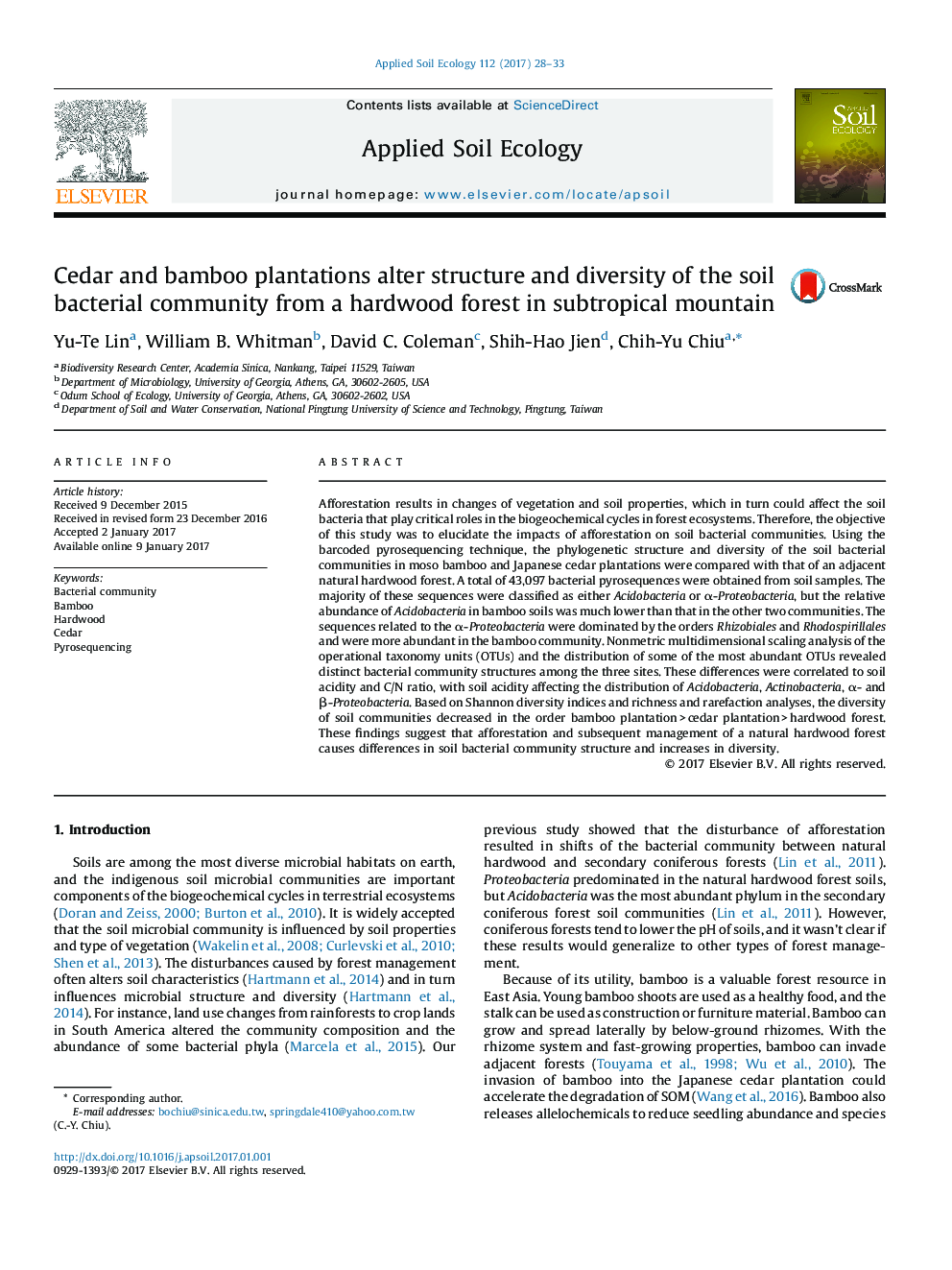| کد مقاله | کد نشریه | سال انتشار | مقاله انگلیسی | نسخه تمام متن |
|---|---|---|---|---|
| 5742755 | 1617771 | 2017 | 6 صفحه PDF | دانلود رایگان |
- Soil bacterial structures were distinct among the three communities.
- The difference in bacterial structure correlated to soil acidity and C/N ratio.
- The natural hardwood forest community was less diversified than the other two plantations.
- Management and afforestation cause differences in soil bacterial diversity and structure.
Afforestation results in changes of vegetation and soil properties, which in turn could affect the soil bacteria that play critical roles in the biogeochemical cycles in forest ecosystems. Therefore, the objective of this study was to elucidate the impacts of afforestation on soil bacterial communities. Using the barcoded pyrosequencing technique, the phylogenetic structure and diversity of the soil bacterial communities in moso bamboo and Japanese cedar plantations were compared with that of an adjacent natural hardwood forest. A total of 43,097 bacterial pyrosequences were obtained from soil samples. The majority of these sequences were classified as either Acidobacteria or α-Proteobacteria, but the relative abundance of Acidobacteria in bamboo soils was much lower than that in the other two communities. The sequences related to the α-Proteobacteria were dominated by the orders Rhizobiales and Rhodospirillales and were more abundant in the bamboo community. Nonmetric multidimensional scaling analysis of the operational taxonomy units (OTUs) and the distribution of some of the most abundant OTUs revealed distinct bacterial community structures among the three sites. These differences were correlated to soil acidity and C/N ratio, with soil acidity affecting the distribution of Acidobacteria, Actinobacteria, α- and β-Proteobacteria. Based on Shannon diversity indices and richness and rarefaction analyses, the diversity of soil communities decreased in the order bamboo plantation > cedar plantation > hardwood forest. These findings suggest that afforestation and subsequent management of a natural hardwood forest causes differences in soil bacterial community structure and increases in diversity.
Journal: Applied Soil Ecology - Volume 112, April 2017, Pages 28-33
